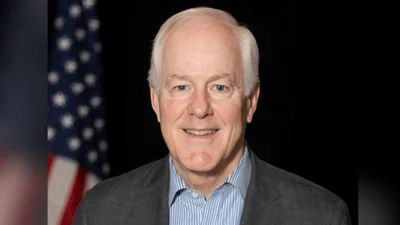Us Senator Ted Cruz (TX) | Ballotpedia
Us Senator Ted Cruz (TX) | Ballotpedia
U.S. lawmakers from Texas are advocating for the relocation of the National Aeronautics and Space Administration's (NASA) headquarters from Washington, D.C. to the Lyndon B. Johnson Space Center in Houston, Texas. The group, led by U.S. Senate Commerce, Science, and Transportation Committee Chairman Ted Cruz and U.S. House Science, Space, and Technology Committee Chairman Brian Babin, sent a letter to President Trump requesting the move.
In their letter, the legislators contend that NASA's operations are currently disconnected from the everyday activities of its centers and hindered by bureaucratic oversight in the capital. They argue that the Johnson Space Center is a more appropriate location due to its substantial involvement in America's space exploration endeavors, housing Mission Control and the largest NASA workforce.
The letter also highlights Texas's conducive business environment, comparatively lower government regulation, and a robust commercial space sector, noting that the cost of living is significantly lower than that of the Washington, D.C. area. The lawmakers believe the move would create jobs, save taxpayer money, and invigorate NASA.
Joining Cruz and Babin in the letter are several other Texan lawmakers including Senator John Cornyn and Representatives Jodey Arrington, John Carter, Michael Cloud, Dan Crenshaw, and others. The letter emphasizes the historical connection between Houston and the U.S. space program and points out the strategic advantages Texas offers for NASA's future, including its strong commercial aerospace presence.
According to them, moving NASA's headquarters to Houston would provide an opportunity to reinvigorate the agency and reconnect it with its core mission. They suggest that Houston's central location among NASA’s centers and its geographical centrality in the United States presents a strategic advantage.






 Alerts Sign-up
Alerts Sign-up